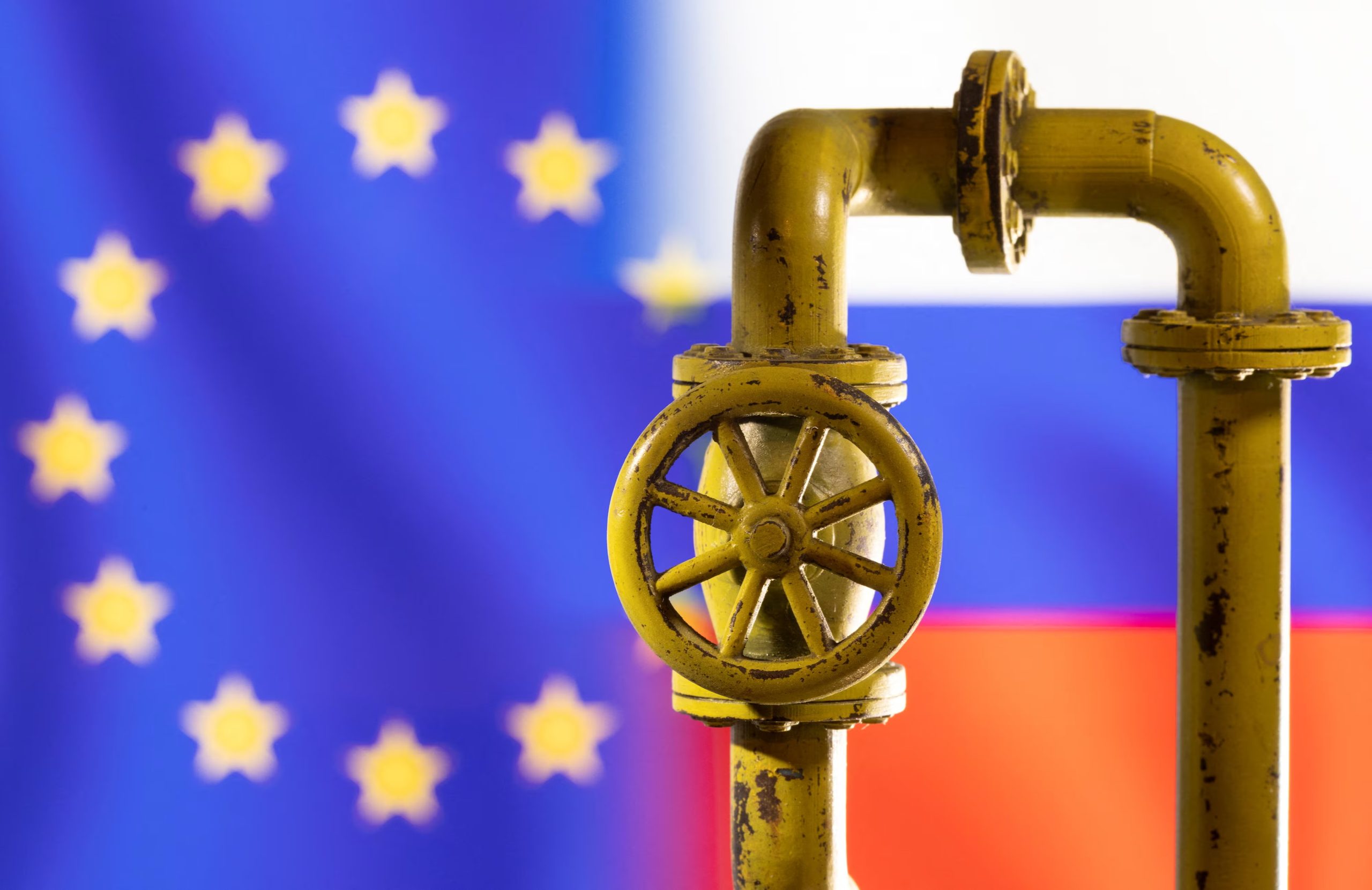In a bold move at the G7 Summit in Canada’s Kananaskis, the European Commission on Friday, June unveiled a plan to eliminate all Russian gas imports by the end of 2027.
The strategy aims to ramp up pressure on Moscow in hopes of prompting peace negotiations in Ukraine, while sharply curtailing Moscow’s ability to fund its war machine.
Under the proposal, no new contracts for Russian gas would be allowed starting January 1, 2026.
Existing short-term agreements would run through mid-2026, and long-term deals would expire by January 1, 2028.
The bans would extend beyond pipeline deliveries to include liquefied natural gas (LNG) and even nuclear fuel imports, subject to phased reductions
Commission President Ursula von der Leyen emphasized the approach’s strategic intent: “To achieve peace through strength, we must put more pressure on Russia… Sanctions are critical,” she said.
That resolve was underscored when, simultaneously, Russia struck Ukrainian cities: 32 missiles and 440 drones hit Kyiv, killing 26 people; Odesa also suffered significant damage .
Ukrainian officials seized on the timing.
Foreign Minister Andrii Sybiha decried the attacks as a direct challenge to the G7’s unity, calling it “a clear signal of total disrespect”.
Similarly, shortly after former U.S. President Trump held a phone call with President Putin, Russia launched a wave of 183 drones and 11 missiles into Ukraine
EU Energy: A swift pivot since 2022
Europe dramatically reduced its energy ties with Russia after February 2022.
The bloc slashed pipeline gas imports from 45% of its needs in 2021 to just 19% in 2024.
Oil dependence fell to 3%, and coal was fully banned
Still, about €23 billion in energy payments flowed to Russia last year
Think tanks estimate that cutting this revenue would deprive the Kremlin of roughly 22% of its budget—a significant blow to Moscow’s war capabilities
Opposition from Energy-Dependent States
Not all EU members support the plan. Hungary and Slovakia, both heavily reliant on Russian gas, have resisted.
Hungary alone still receives around 80% of its gas via the TurkStream pipeline, and Slovakia depends on Russia for about 89% of its imports
Following a veto by Hungary against a supportive statement a day prior, EU officials intend to bypass opposition by approving the ban with a qualified majority.
It will supposedly require backing from member states representing at least 65% of the bloc’s population.
Legal tools, including invoking “force majeure,” are being prepared to help companies exit existing contracts without penalty
Broader Strategy & Global Ripples
This plan expands the EU’s earlier measures, like the 2022 ban on Russian oil and coal, and the G7’s $60-per-barrel oil price cap.
That cap, criticized for being too high and periodically ignored, has nonetheless gained renewed relevance amid rising energy prices caused partly by geopolitical events like Israel’s conflict with Iran.
Analysts noted that without broader sanctions, Russia could still generate €215 billion in energy revenue by exporting to other markets.
To close this loophole, the UK and Australia have sanctioned hundreds of “shadow fleet” tankers used to evade price caps
In the U.S., Senators Lindsey Graham and Richard Blumenthal are drafting legislation to sanction any nation importing Russian energy
In parallel, the EU is considering moving roughly €200 billion in frozen Russian assets to a “special purpose fund” to support Ukraine, a powerful economic and symbolic gesture
Costs, Risks, and Geopolitical Stakes
While Moscow has made modest battlefield gains in eastern Ukraine, those advances come at a heavy cost: reportedly around a million casualties, with half deemed permanent losses.
Ukraine’s resistance and Western sanctions have battered Kremlin confidence.
At home, Europe now faces an energy reckoning.
Some nations are reconsidering their energy mix, including nuclear investments, to compensate for Russian shortages.
Rising energy prices and industrial uncertainties, exacerbated by shifting U.S. gas export policies, add layers of complexity.
The Road Ahead
The EU’s phase-out strategy signals a historic shift: no longer reliant on Russian energy, Europe aims to undercut Moscow systematically and align energy independence with geopolitical stability.
But success hinges on unity, legal execution, and balancing economic burdens.
As the world watches, the question remains: Can breaking this energy lifeline cripple Putin while keeping Europe’s lights on and peace in reach?



